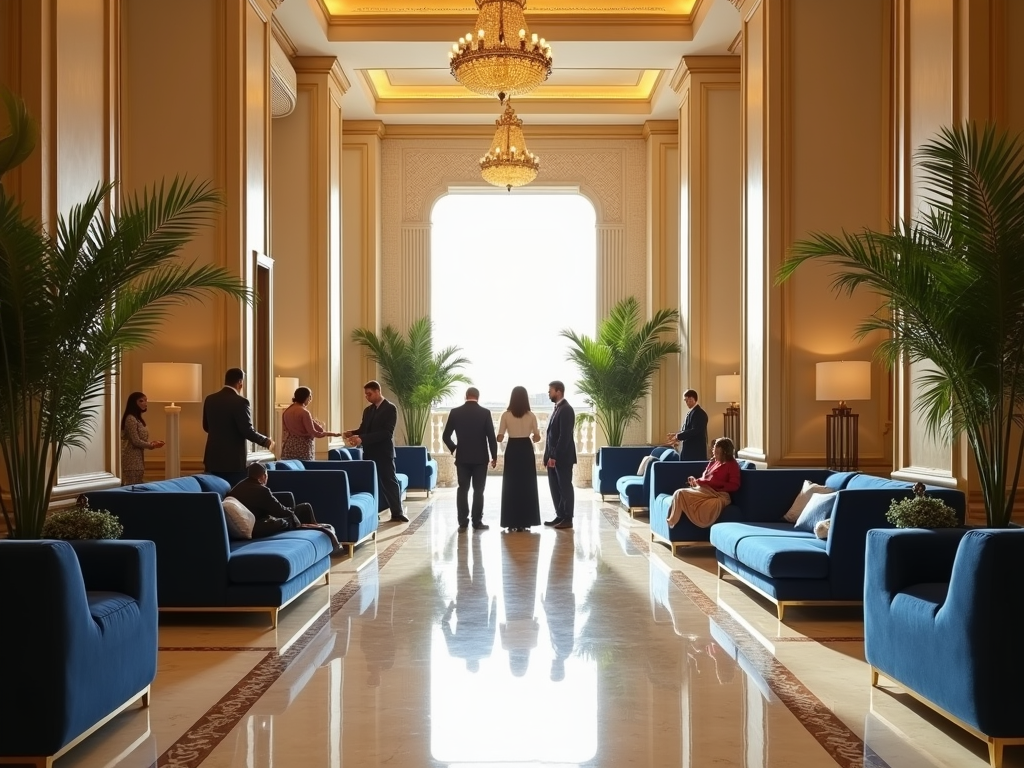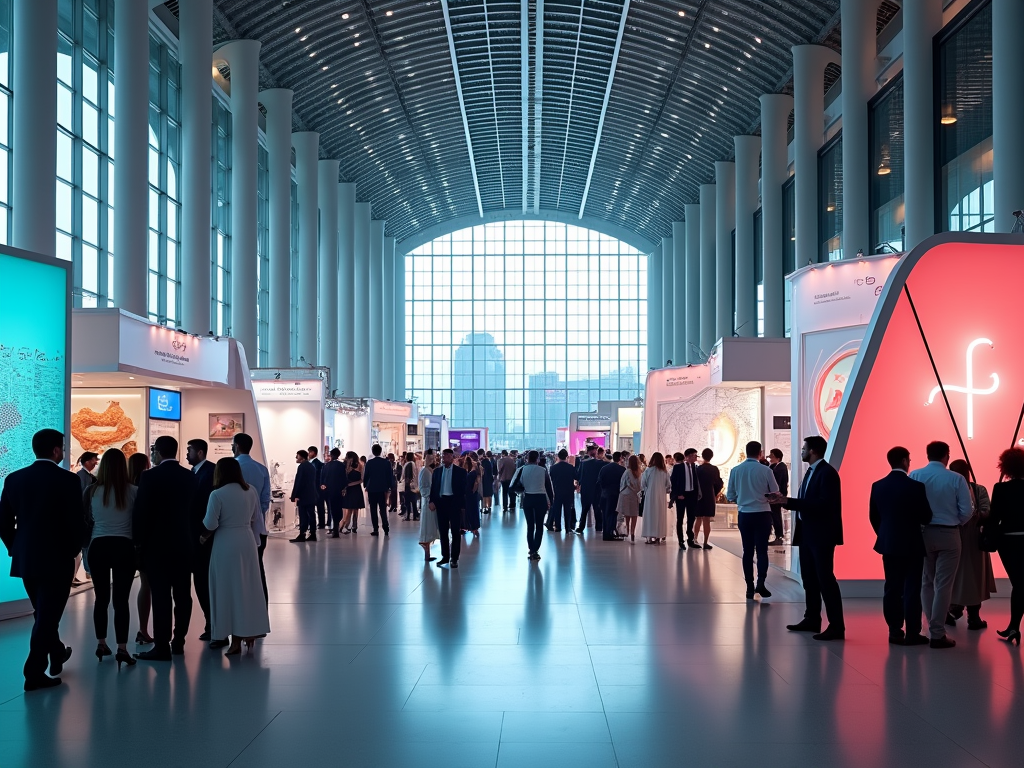Dubai’s tourism and hospitality industry plays a crucial role in bolstering international business by providing a dynamic platform for global trade, networking, and cultural exchange. The emirate’s strategic location, world-class infrastructure, and diverse offerings attract businesses and tourists alike, creating a vibrant environment conducive to economic growth. The synergy between tourism and hospitality enhances Dubai’s reputation as a global business hub, making it a preferred destination for international companies looking to expand operations and build connections. In this article, we will explore the various ways this sector supports international business, the benefits it provides, and the strategies that make Dubai a prime locale for global enterprises.
1. Strategic Location and Connectivity

One of the most significant advantages of Dubai is its strategic location at the crossroads of Europe, Asia, and Africa. This geographical positioning allows businesses to access emerging markets with relative ease. Furthermore, Dubai International Airport (DXB) is one of the busiest airports in the world, offering extensive flight connectivity that facilitates international travel for business leaders and tourists alike.
Moreover, the city’s advanced infrastructure, including its extensive road networks and seaports, supports seamless logistics and transportation. Businesses benefit from:
- Rapid access to major markets.
- Efficient customs and clearance processes.
- Proximity to other Gulf Cooperation Council (GCC) countries.
Such connectivity enhances Dubai’s appeal as a business hub, encouraging international companies to establish their regional headquarters within the emirate.
2. A Hub for Networking and Collaboration

Dubai’s tourism and hospitality sectors foster a unique networking environment that is vital for international business. Events such as trade fairs, international conferences, and exhibitions are hosted throughout the year, drawing participants from various industries worldwide. These events provide invaluable opportunities for establishing connections, sharing knowledge, and exploring new market trends.
Notably, venues like the Dubai World Trade Centre (DWTC) and various luxury hotels frequently accommodate such gatherings. The networking opportunities available foster collaboration between local and international businesses, leading to:
- Joint ventures and partnerships.
- Innovative partnerships across different sectors.
- Access to a wide range of business resources.
As businesses engage with diverse stakeholders, they also gain insights into regional market dynamics, aiding strategic decision-making for international growth.
3. High-Quality Hospitality Services
The hospitality industry in Dubai is renowned for its exceptional quality and service standards. Luxury hotels, fine dining restaurants, and premium leisure facilities are key attractions for international visitors and business travelers. These offerings ensure that visiting executives and their teams experience comfortable and upscale accommodations, which is essential for productive business engagements.
Furthermore, the hospitality sector contributes positively to the local economy while enhancing Dubai’s global image through:
- World-class service and customer experience.
- Diverse multicultural environments that appeal to various preferences.
- A wide range of venues for corporate events and functions.
This high level of service excellence becomes a competitive advantage for international businesses hosting meetings or events in Dubai, allowing them to make a lasting impression on clientele and partners.
4. Tourism as a Catalyst for Diversified Growth
Dubai’s emphasis on tourism has led to an economic diversification strategy that benefits multiple sectors, including retail, finance, real estate, and logistics. With millions of tourists visiting annually, businesses across various industries see increased demand for goods and services, resulting in an uplifting effect on the surrounding economy.
Tourism-related activities generate substantial revenue, consequently allowing organizations to:
- Invest in local talent.
- Enhance product and service offerings.
- Develop international marketing strategies.
This ripple effect enhances the overall business landscape, making Dubai a versatile and thriving metropolis for international operations.
5. Regulatory Support and Business-Friendly Environment
Dubai’s government actively promotes policies that create a favorable business climate. Initiatives such as tax exemptions, 100% foreign ownership in designated areas, and streamlined business registration processes have all been implemented to attract international businesses. The hospitality and tourism industry benefits from these developments, as they encourage increased foreign direct investment and entrepreneurship.
Key regulatory features include:
- Free economic zones that cater to various sectors.
- Transparent legal frameworks for business operations.
- Government incentives aimed at tourism enhancement.
Combined, these factors contribute to establishing Dubai as a strategic launchpad for businesses aiming to venture into new territories and reach global audiences.
Conclusion
In conclusion, Dubai’s vibrant tourism and hospitality industry significantly supports international business by creating a dynamic environment for networking, collaboration, and investment. Its strategic location, high-quality services, and government incentives collectively position the emirate as an attractive hub for global enterprises. By combining exceptional offerings with a business-friendly regulatory framework, Dubai has successfully established itself as a prime destination for international business growth. As the city continues to evolve into a global center for commerce and tourism, its role in supporting international business will only strengthen, promising a bright future for businesses looking to thrive in the global market.
Frequently Asked Questions
1. What makes Dubai an attractive destination for international businesses?
Dubai’s strategic location, exceptional infrastructure, business-friendly regulations, and quality hospitality services make it an attractive destination for international businesses seeking to expand their operations.
2. How does tourism contribute to Dubai’s economy?
The tourism sector generates substantial revenue, stimulates job creation, fosters diversification, and encourages investments in various industries, thereby significantly contributing to Dubai’s economy.
3. What types of events are held in Dubai to support networking?
Dubai hosts numerous events, such as trade fairs, conferences, and exhibitions, designed for networking, knowledge sharing, and exploring market opportunities across different sectors.
4. Are there specific areas in Dubai designated for foreign businesses?
Yes, Dubai has established free economic zones where foreign businesses can enjoy benefits like 100% ownership and tax exemptions, creating a conducive environment for international operations.
5. How does high-quality hospitality impact business relationships in Dubai?
High-quality hospitality enhances the overall experience for business travelers, promoting favorable business relationships and showcasing Dubai as a premier destination for corporate events and meetings.



